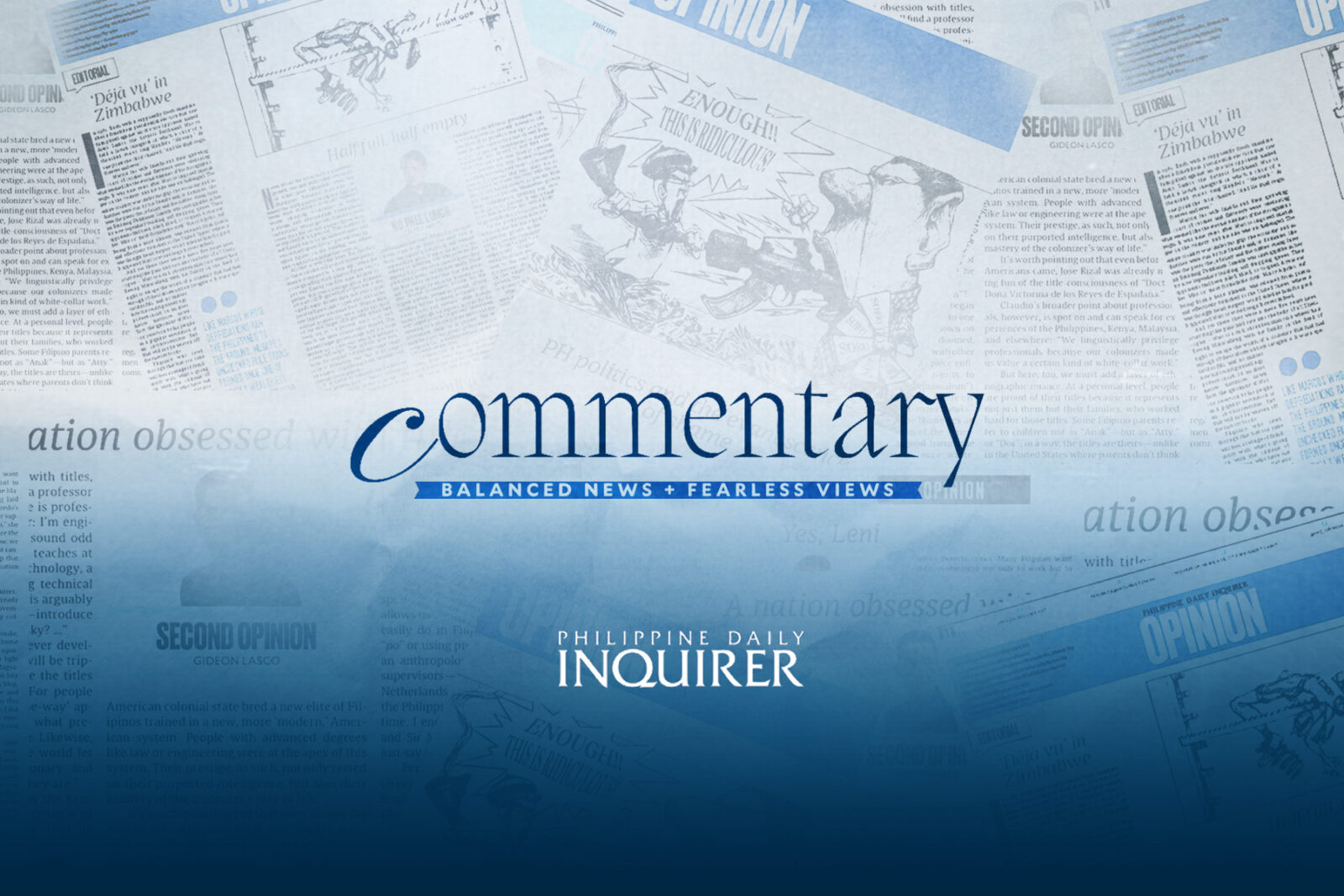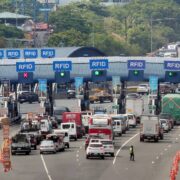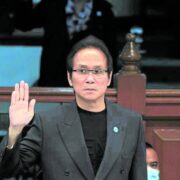Purging the culture of impunity

Two things took place on Wednesday, Feb. 5, that had a lot to do with the fight against corruption.
The more publicized was the impeachment of Vice President Sara Duterte for, among other grounds, the betrayal of public trust, graft and corruption, and bribery.
The second, less controversial but just as important, was the start of the Open Government Partnership (OGP) Asia Pacific Regional Meeting here in the Philippines. The OGP is a worldwide initiative among national and sub-national governments that aims to promote transparency in government, take measures to combat corruption, and foster good governance.
One of the side events of the summit was the forum, “Leveraging Strategic Collaborations to Address Corruption,” organized by the Stratbase Institute, in partnership with Democracy Watch Philippines.
In her keynote address, Budget Secretary Amenah Pangandaman described corruption’s corrosive effects on people, societies, and economies. She cited the signing, just last July, of the New Government Procurement Act which introduces open contracting, thus enabling the disclosure of data and documents at all stages of procurement, from planning to contract implementation.
Another important aspect of the fight against corruption is the use of technology. Pangandaman said the government was reviving Project DIME, or the Digital Information for Monitoring and Evaluation, which enables a more open monitoring and evaluation of big-ticket infrastructure projects.
Digitalization is also at the core of fighting red tape and corruption, according to Anti-Red Tape Authority (Arta) director general Ernesto Perez. The best evidence is the employment of technology by local government units (LGUs) in their service delivery. Specifically, electronic business one-stop shops across LGUs in Metro Manila have shown a notable reduction in business permit processing times and an increase in registration and revenues.
The link is clear, he said: the easier it is to do business, the stronger the economy becomes.
Arta is working closely with regulatory agencies to remove unnecessary barriers across key sectors, including telecommunications, energy, logistics, housing, health care, and infrastructure.
“Government alone cannot achieve this. We need the active participation of civil society and the private sector to sustain a culture of integrity. Corruption cannot flourish if there is a strong private sector helping, assisting, and collaborating with the government in fighting this. Public-private collaboration remains a cornerstone of our work,” Perez said.
Given all these, it is clear that for the fight against corruption to take root and to hold sustainably, we need to put in office people who have the intestinal fortitude to see the fight through despite the difficulties. This takes on a special significance as the election draws near.
A Pulse Asia survey conducted Nov. 26 to Dec. 3 last year found that 90 percent of Filipinos believe government officials involved in corruption must be held accountable. Moreover, 41 percent of Filipinos believe that addressing corruption should be a top priority for senatorial candidates.
Complementing this are the findings of a January 2025 survey by the Social Weather Stations, which found that nine out of 10 Filipinos will vote for candidates who advocate for job creation, food security, health-care programs, access to education, and OFW welfare.
Filipinos will vote for candidates who advocate for increasing job opportunities, the development of agriculture, and ensuring food security (94 percent); a stronger health-care system (93 percent); equal access to education, workers’ rights, and OFW welfare (92 percent); reduced poverty and hunger, and addressing the impact of climate change (87 percent), and better prices of goods and services (85 percent). Other issues include food security, inflation control, the defense of our territory in the West Philippine Sea, and the attainment of energy security.
Success in these result areas is a function of conducting government business efficiently and transparently. Indeed, the fight against corruption is not an issue of mere politics or policy. Our leaders must be brave enough to tackle this issue in a sustained manner in everyday decisions, big and small.
Most importantly, the fight involves the active participation of all sectors, including government, civil society, and the private sector.
Corruption has thrived because of a culture of impunity on the part of the perpetrators, and a defeatist mindset that has prompted people to think that the problem is too big to fight. But it is possible to fight corruption. We just have to demand integrity from our leaders, call them out loudly for their misdeeds, and set in place systems that would make impunity less likely.
The stakes are just too high. The people must take back their power.
—————
Dindo Manhit is the founder and CEO of Stratbase Group.

















